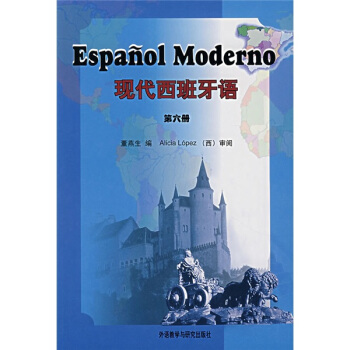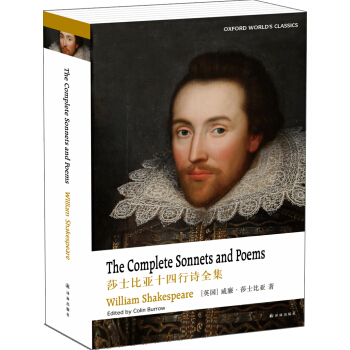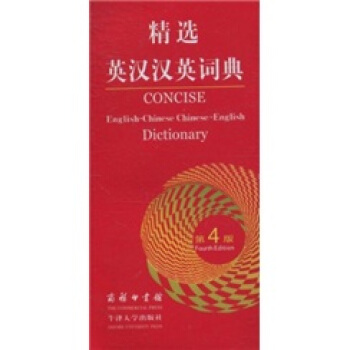![牛津英文经典:社会契约论(英文版) [Discourse on Political Economy and the Social Contract]](https://pic.windowsfront.com/11886763/56dfebd0N448142b9.jpg)

具体描述
编辑推荐
牛津大学出版百年旗舰产品,英文版本原汁原味呈现,资深编辑专为阅读进阶定制,文学评论名家妙趣横生解读。内容简介
发表于1762年的《社会契约论》是卢梭重要的政治著作,书中提出的“主权在民”思想具有划时代的意义,是现代民主政治的基石。其核心思想“合法的国家必须根据普遍意志来进行管理”代表了人民专制对旧有制度的替代,象征了主权和自由。作者简介
让-雅克·卢梭(1712—1778)法国伟大的启蒙思想家、哲学家、教育家、文学家,十八世纪法国大革命的思想先驱,启蒙运动卓越的代表人物之一。主要著作有《论人类不平等的起源和基础》、《社会契约论》、《忏悔录》等。《社会契约论》的主权在民思想,是现代民主制度的基石。精彩书评
没有卢梭,就不会有法国大革命。——拿破仑
卢梭是另一个牛顿。牛顿完成了外界自然的科学,卢梭完成了人的内在宇宙的科学,正如牛顿揭示了外在世界秩序和规律一样,卢梭则发现了人的内在本性
——康德
在《社会契约论》中康德找到了自己的道德启蒙,即“自由是人所特有的”这一原则。所有狂飙突进时期的德国天才人物,从先驱者莱辛和赫尔德开始,直到歌德和席勒……都是卢梭的崇拜者。
——罗曼·罗兰
目录
IntroductionA Note on the Text and Translation
Select Bibliography
A Chronology of Jean-Jacques Rousseau
POLITICAL ECONOMY
THE SOCIAL CONTRACT
Appendix: The General Society of the Human Race
Explanatory Notes
Index
精彩书摘
BOOK II INTEND to examine whether, in the ordering of society, there can be any reliable and legitimate rule of administration, taking men as they are, and laws as they can be. I shall try, throughout my enquiry, to combine what is allowed by right* with what is prescribed by self-interest, in order that justice and utility should not be separated.
I begin my discussion without proving the importance of my subject. People will ask me whether I write on politics because I am a ruler or legislator. I answer that I am not; and that is the reason why I write on politics. If I were a ruler or a legislator, I should not waste my time saying what ought to be done; I should do it, or hold my peace.
I was born a citizen of a free state and a member of its sovereign body,* and however weak may be the influence of my voice in public affairs, my right to vote on them suffices to impose on me the duty of studying them. How happy I am, each time that I reflect on governments, always to find new reasons, in my researches, to cherish the government of my country!
Chapter i
The Subject of the First Book
Man was born free,* and everywhere he is in chains. There are some who may believe themselves masters of others, and are no less enslaved than they. How has this change come about? I do not know. How can it be made legitimate That is a question which I believe I can resolve.
If I were to consider force alone, and the effects that it produces, I should say: for so long as a nation is constrained to obey, and does so, it does well; as soon as it is able to throw off its servitude, and does so, it does better; for since it regains freedom by the same right that was exercised when its freedom was seized, either the nation was justified in taking freedom back, or else those who took it away were unjustified in doing so. Whereas the social order is sacred right, and provides a foundation for all other rights. Yet it is a right that does not come from nature; therefore it is based on agreed conventions. Our business is to find out what those conventions are. Before we come to that, I must make good the assertion that I have just put forward.
Chapter ii
The First Societies
THE most ancient of all societies, and the only one that is natural, is the family. Even in this case, the bond between children and father persists only so long as they have need of him for their conservation. As soon as this need ceases, the natural bond is dissolved. The children are released from the obedience they owe to their father, the father is released from the duty of care to the children, and all become equally independent. If they continue to remain living together, it is not by nature but voluntarily, and the family itself is maintained only through convention. *
Tis shared freedom is result of man’s nature. His first law is his won conservation, his first cares are owed to himself; as soon as he reaches the age of reason, he alone is the judge of how best to look after himself, and thus he becomes his own master.
If we wish, then, the family may be regarded as the first model of political society: the leader corresponds to the father, the people to the children, and all being born free and equal, none alienates his freedom except for reasons of utility. The sole difference is that, in the family, the father is paid for the care he takes of his children by the love he bears them, while in the state this love is replaced by the pleasure of being in command, the chief having no love for his people.
Grotius denies that all human power is instituted for the benefit of the governed. * He cites slavery as an example; his commonest mode of reasoning is to base a right on a fact. A more logical method could be employed, but not one that is more favourable to tyrants.
It is therefore doubtful, following Grotius, whether the human race belongs to a hundred or so men, or whether these hundred men belong to the human race, and he seems inclined, throughout his book, towards the former opinion. This is Hobbes’s view also.* Behold then the human race divided into herds of cattle, each with its chief, who preserves it in order to devour it.
‘As a shepherd is of a nature superior to that of his flock, so too the shepherds of men, their chiefs, are of a nature superior to their peoples’—this argument, according to Philo, was used by the Emperor Caligula;* who would conclude (correctly enough, given his analogy) either that kings were gods or that the people were animals.
The reasoning employed by this Caligula amounts to the same as that of Hobbes and Grotius. Aristotle* too had said, earlier than any of them, that men are not naturally equal, but that some are born for slavery and some for mastery.
Aristotle was right, but he took the effect for the cause. Any man who is born in slavery is born for slavery; there is nothing surer. Slaves in their chains lose everything, even the desire to be rid of them; they love their servitude, like the companions of Odysseus, who loved their brutishness. If there are slaves by nature, it is because slaves have been made against nature. The first slaves were made by force, and they remained so through cowardice.
I have said nothing of King Adam or of the Emperor Noah, the father of three great monarches who shared the universe among themselves, like the children of Saturn, with whom they have been identified.* I hope that my restraint in this respect will be appreciated; for being descended directly from one or other of these princes, and maybe from the senior branch of the family, who knows but that, if my entitlement were verified, I might not find that I am the legitimate king of the human race? However that may be, it cannot be denied that Adam was sovereign over the world, like Crusoe on his iland, for so long as he was the sole inhabitant; and the advantage of this form of rule was that the monarch, firm on his throne, had neither rebellions, nor wars, nor conspirators to fear.
Chapter iii
The Right of the Strongest
THE stronger party is never strong enough to remain the master for ever, unless he transforms his strength into right, and obedience into duty. This is the source of the ‘right of the strongest’, a right which people treat with apparent irony * and which in reality is an established principle. But can anyone ever explain the phrase? Force is a physical power; I do not see how any morality can be based on its effects. To yield to force is an act of necessity, not of consent; at best it is an act of prudence. In what sense can it be a duty?
Let us suppose for a moment that this alleged right is valid. I say that the result would be completely senseless. For as soon as right is founded on force, the effect will alter with its cause; any force that is stronger than the first must have right on its side in its turn. As soon as anyone is able to disobey with impunity he may do so legitimately, and since the strongest is always right the only question is how to ensure that one is the strongest. But what kind of a right is it that is extinguished when that strength is lost? If we must obey because of force we have no need to obey out of duty, and if we are no longer forced to obey we no longer have any obligation to do so. It can be seen therefore that the word ‘right’ adds nothing to force; it has no meaning at all here.
‘Obey the powers that be’.* If this means: ‘Yield to force’, it is a sound precept, but superfluous; I can guarantee that it will never be violated. All power is from God, I admit; but all dicease is from God also.
……
前言/序言
In 1755, the publication of Rousseau’s Discourse on Inequality brought him considerable success, but also created obligations. The Discourse, in tracing the moral decay of man in society, drew a large-scale contrast between the state of nature, in which man had at least the potential for good, and the social state, which as Rousseau described it had led to misery and tyranny . The contrast between nature and society made it possible to denounce many political and social evils, but left fundamental questions unanswered; the author owed it to himself and to his public to develop his ideas further. One question was how the individual’s potential for good could be preserved in the social milieu of the mid-eighteenth century, and to this answer came with émile, or Education (1762); another was whether coexistence in society necessarily made all the citizens hostile to each other, seeking their own interests at the expense of everyone else. The historical approach of the Discourse, together with the discreet omission of direct political reference, left it unclear whether the evils depicted by Rousseau were those only of his own time and place, or were inevitable in all societies at every period. The Social Contract, expanding some hints in an enigmatic paragraph of the Discourse, denies this inevitability and offers a more optimistic evaluation. However, the optimism is fragile; Rousseau shows that politically organized society, ‘the state’ as he usually calls it, can be beneficial and just, but also that the threats to a well-ordered state are persistent and ubiquitous.During the years that it took for his thought to mature, he contributed his article Political Economy to Diderot and d’Alembert’s Encyclopédie and discussed the social and moral aspects of culture in the long Letter to d’Alembert on theatre (1758). He also wrote one of the century’s most popular and influential novels, Julie, but abandoned an ambitious project he had started, a work on political institutions generally. He says at the beginning of the Social Contract, which appeared in 1762, the same year as émile, that it is all that remains of this larger work. The paragraph in the Discourse on Inequality (towards the end of Part II) had sketched the main theory in outline: ‘The people having, as regards their social relations, concentrated all their wills into one, the several articles in respect of which this will is expressed become so many fundamental laws. . . and one of articles regulates the choice and power of the magistrates [officers of state] appointed to watch over the execution of the rest’,. Rousseau introduces the passage with a guarded remark that he is here adopting the ‘common opinion’ that society is based on a contract, or blinding agreement; he thus acknowledges that he was working within a particular conceptual tradition, the contract theory of the state. This dated back to ancient times, and had been of fundamental importance in European thought since the sixteenth century.
As regards Rousseau’s contribution to the tradition, two preliminary observations should be made: that for most educated Europeans the standard view, even as late as 1762, was probably not the contract theory, despite its influence, but the belief that kings had a divine right to rule, a right that was seen as the origin and basis of social organization; and secondly, that among those who preferred the contract theory, the usual view again favoured monarchy, interpreting the contract as some kind of agreement between ruler and subjects (a ‘contract of submission’) by which the subjects consent to be ruled. Rousseau made a great change. It lies in the words ‘having concentrated all their wills into one’. The notion thus expressed was later, in the article Political Economy, to become the ‘volonté générale’, or general will. It is this concept, rather than his view of the contract, which is Rousseau’s lasting contribution to political theory. Its appearance in the Contract is a clear sign that monarchist theories of the state were beginning to give way to democratic ideas, ‘the people’ having (in Rousseau’s formulation of the contract) an active rather than a passive role. In an even wider context, the concept of the general will is of importance to anyone reflecting on the relationship of the individual to the social group or groups of which he is a member, since it seeks to define the nature of the bond by which the group is created.
The Political Economy article, though published like the second Discourse in 1755, seems likely (the point is debatable) to have been written after it, the Discourse dating back to an essay competition announced in 1753. Rousseau wrote the article when he and Diderot were close friends; they quarreled a few years later. Diderot commissioned the article, and he and Rousseau seem to have cooperated in working out their political ideas, since Diderot wrote, for the same volume, an article on Nature Law (Droit naturel) to which Rousseau’s article refers, and on which he must have reflected deeply. A chapter discarded from the Contract, given here in the Appendix, refutes some of its arguments. ‘La volonté générale’, however is a phrase used also by Diderot, and Rousseau’s reference to him in the Encyclopédie concerns the general will; it appears in a passage which compares society, the ‘the body politic’, to a human body. This is part of an argument that a social group, while it consists of separate individuals, possesses a single will, which like the will of a particular person ‘tends always to the conservation and well-being of the whole’. What part Diderot played in the genesis of the idea now always connected with Rousseau is unclear, but the passage in the Political Economy article testifies to an important stage in its development.
In various other respects also Rousseau’s article, commonly known as his Discourse on Political Economy, is transitional between the Discourse on Inequality and the Social Contract. It retains the high moral tone and some of the indignant rhetoric of the earlier discourse, for instance in the third section when contrasting the situations of rich and poor, and displays already the later work’s anxiety about the maintenance of the social bond, constantly at risk because of the selfishness and partiality of particular elements of society, whether individuals or groups. Less methodical and abstract than the Contract, and superficially more modern in that there are fewer illustrations taken from the ancient world, it tackles one major subject barely mentioned in the Contract, that of taxation, and has much to say on patriotism, which the Contract does not discuss explicitly; the link between patriotism and the maintenance of social feeling, however, will be clear. The feel of the two works is different, too. Perhaps in adapting himself to the authoritative style expected from an encyclopaedia, Rousseau tends in article to treat society from the administrative angle, a manner that seems not to have suited him, because he did not return to it. He was prepared to play the loftier role of legislator, as in his A Projected Constitution for Corsica (written in about 1764-5) or his Considerations on the Government of Poland (1771-2), but not that of public official. In the Social Contract, the voice is that of the theorist, but one who is more on the side of the individual than of government. The essential vision is that of the member of society, the figure Rousseau usually calls the citizen, a man (it has to be accepted that, whether out of obedience to convention or deliberate choice, Rousseau’s terminology is consistently masculine) who is not isolated as he conceivably would be in the ‘state of nature’, but one among many others of the same kind forming a society.
The precise date at which Rousseau began working towards his treatise is not known. In the Confessions, Book X, he explains that it was on moving house late in 1757 that he abandoned most of the larger project on political institutions in general. Of the Contract, a partial first version has survived in what is called ‘the Geneva manuscript’. It contains roughly the same material, differently arranged, as the first two books of the published work, breaking off soon after the beginning of the third; there is also a draft of the last main chapter, on civil religion.
The manuscript also shows that Rousseau hesitated over his title. Apparently not fully satisfied with the word Contract, he at one time preferred ‘On civil society’. In the text, he often uses synonyms such as pact, notably in the title of the sixth chapter of Book I, a basic chapter which follows some preliminary arguments rebutting earlier theories of society. The essential idea is that of a voluntary agreement among a group. Initially, the agreement is seen as the answer to the problem of ensuring joint protection for a number of people living in unsafe conditions; later it becomes something more like a consensus on the value of living in society. Even in the formulation of the problem in I. vi, the concept of the general will is hinted at, and the definition of the pact, when it comes, in effect defines the general will also. Beginning in terms of self-interest—each future associate seeks to remain free, while receiving benefits from the cooperation of all the others—the argument leads towards the mutual surrender of individualism; after agreement is reached the association transforms itself into a corporate entity with a single will.
用户评价
书评二:时代的回响与永恒的张力——一部经得起时间拷问的文献 阅读《社会契约论》的英文原版,总会伴随着一种奇特的时空错位感。我们身处信息爆炸的二十一世纪,却在研读数百年前奠定现代政治基石的文本。这种文本的魅力就在于它的“永恒的张力”——它既是特定历史背景下对绝对君主制的有力反击,又以其对“公意”与“个人自由”之间平衡的探讨,成为今天我们面对全球化、技术监管等新议题时,依然可以引用的思想资源。这本书的叙事节奏并不总是流畅易懂的,有些章节的论证铺陈得极为细密,需要反复对照上下文才能捕捉其微妙的语义变化。但正是这种“晦涩”,恰恰彰显了其思想的深度。它不是为大众提供一套易消化的政治口号,而是为严肃的思想探寻者准备的基石。我尤其欣赏作者在阐述主权不可分割性时的那种近乎宗教般的虔诚。这种对理想政治形态的极致追求,虽然在现实中往往难以企及,但正是这种理想的光芒,指引着人类社会不断向前修正。对于任何想要真正理解西方政治思想史的读者,这本书的英文原版是绕不过去的一座高峰,其语言的精确性是中文译本难以完全传达的。
评分书评四:关于“契约”的重构——从个体到共同体的哲学炼金术 这本书最令人着迷的部分,在于它如何运用一系列精妙的哲学步骤,完成了从孤立的个体原子到有机的政治共同体的“炼金术”。它巧妙地避开了许多前辈哲学家在论证权力合法性时所陷入的循环论证,而是将焦点集中在“自由”的重新定义上。这里的自由不再是为所欲为的放纵,而是在普遍法则下实现的自我服从,这是一种更高层次的解放。这种对“自由”概念的深刻挖掘和重构,是全书的理论核心,也是其持久影响力的源泉。阅读时,我脑海中不断浮现的是各种社会实验的场景——假设人们聚集在一起,在没有外部强制的情况下,如何通过纯粹的理性达成一致?作者对这一过程的描绘,如同一次高超的心理学和政治学的结合演示。不同于后世一些理论将国家塑造成一个冰冷的机器,这里的契约似乎带有某种近乎神圣的道德光环。它迫使我们思考:我们是否真的愿意为了更高级的集体福祉,而放弃某些绝对的个人权利?这种对个体意志与集体意志之间微妙关系的探讨,是永恒的议题。
评分书评一:深入思想的迷宫,触及人类理性之光 这本《牛津英文经典:社会契约论》的英文原著,甫一翻开,便如同一脚踏入了十八世纪欧洲思想的宏伟殿堂。我最深刻的感受是那种扑面而来的思辨力量,它并非仅仅停留在对政治结构的简单描摹,而是将人类社会存在的根基问题,用一种近乎冷峻的逻辑一步步剖析开来。阅读过程本身就是一场对自身认知边界的不断挑战。作者似乎总能预见到读者心中最深层的疑惑,并在恰当的时机抛出更具颠覆性的论点,迫使你不得不重新审视那些被日常习惯固化了的“常识”。这种体验是极其酣畅淋漓的,仿佛剥开了层层迷雾,看到了理性构建社会秩序的艰辛历程。尤其是对于那些习惯于快速阅读的人来说,这本书需要沉下心来,细细品味每一个长句中蕴含的复杂从句和精确的术语选择。它不提供简单的答案,而是搭建了一个严密的思想框架,让读者自己去填充血肉,去体验从“自然状态”到“公民社会”的飞跃是如何在理论上被逻辑支撑起来的。对我个人而言,它提供的价值不在于结论是否全然接受,而在于那套无与伦比的分析工具,它极大地提升了我理解当代政治哲学思潮的能力。这本书的印刷和装帧也体现了牛津经典的严谨性,拿在手里就有一种对知识的敬畏感。
评分书评三:语言的精确性与阅读体验的艰辛 坦白说,抱着对“经典”的敬畏开始阅读这本英文原版,过程是充满挑战的。牛津经典系列的排版一向简洁有力,但面对十八世纪的复杂句法结构,即便是精通英语的读者,也难免会感到吃力。这本书的英文用词非常讲究,充满了古典的庄重感和哲学的严谨性,每一个副词、每一个限定词的使用都承载着特定的逻辑重量,容不得丝毫的含糊带过。这意味着读者必须放慢语速,像对待一份精密的法律文件一样去审视每一个段落。我发现自己不得不频繁地停下来,查阅那些在现代英语中已不常用的词汇,或者重新梳理那些嵌套了多层从句的长句的主谓宾结构。这种阅读体验并非轻松愉快的休闲,而更像是一场智力上的“负重前行”。但正是这份艰辛,换来了对作者原意最直接、最未经稀释的理解。当最终理清了一个复杂的逻辑链条时,那种豁然开朗的成就感,是任何二手资料或简化摘要都无法给予的。这本书要求读者付出对语言的最高尊重和投入。
评分书评五:一个思想遗产的沉重负担与前瞻性 拿到这本书,感觉肩上仿佛多了一份沉甸甸的学术责任。它不仅是哲学史上的一个里程碑,更是后续所有关于民主、共和乃至革命理论的源头活水。翻阅此书,会清晰地看到后世许多政治思想家是如何在其基础上发展、修正或激烈反对的。因此,阅读它不仅仅是理解作者本人的观点,更是一次对西方政治思想“谱系”的追溯之旅。更令人惊叹的是,书中对良好治理结构和公民教育的论述,在今天看来依然具有惊人的前瞻性。作者对教育在塑造合格公民方面所起作用的强调,放在充斥着虚假信息和碎片化认知的当代社会,显得尤为迫切和警醒。这本书以一种近乎理想主义的笔触描绘了“人民主权”的蓝图,它或许在实践中受到了诸多扭曲和误解,但其原始的理论纯度,仍然是检验一切现实政治实践的试金石。对于任何渴望超越表面政治争论,直抵权力本质和公民责任核心的读者来说,这本书提供的视角是无可替代的。
评分此用户未填写评价内容
评分包装精美,印刷清晰,不错。
评分不错不错不错不错不错不错
评分孩子很满意...........
评分如果学了满腹知识,却用来做不利于人民的事儿,怎么可以苟活。不辜负。
评分书很厚,印刷质量一般,不过比较便宜!
评分《少年维特的烦恼》,很有名的一本书,这次买英文版,也是希望可以锻炼自己的英语能力。
评分好书好书值得推荐
评分买了几本牛津英文经典的书,准备好好看看~~
相关图书
本站所有内容均为互联网搜索引擎提供的公开搜索信息,本站不存储任何数据与内容,任何内容与数据均与本站无关,如有需要请联系相关搜索引擎包括但不限于百度,google,bing,sogou 等
© 2026 book.coffeedeals.club All Rights Reserved. 静流书站 版权所有












![标准中文课本:第一级第一册(双语版) [Standard Chinese (Bilingual Version)] pdf epub mobi 电子书 下载](https://pic.windowsfront.com/11509586/53f297cbN092024db.jpg)

![牛津英文经典:梦的解析(英文版) [The Interpretation of Dreams] pdf epub mobi 电子书 下载](https://pic.windowsfront.com/11895062/56f50fa5N7ab888cd.jpg)





